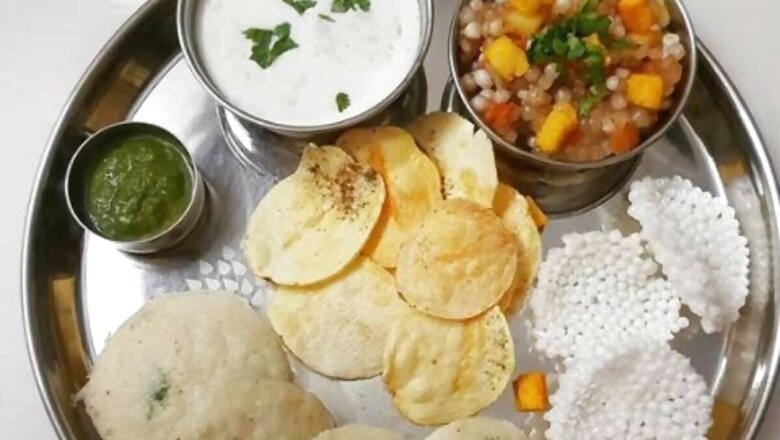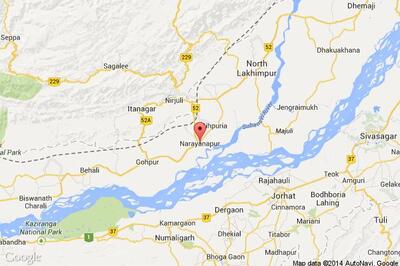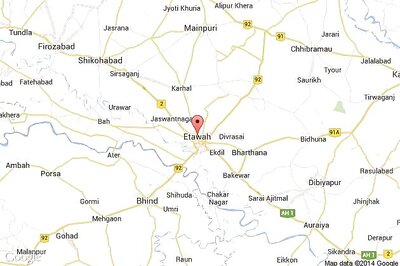
views
Navratri is a biannual Indian festival celebrated once in the spring season and once during autumn and spans over a period of nine days. Fasting is a part of this festival and people who celebrate Navratri exclude certain food groups from their diet to purify their body, mind and soul.
Even if you don’t ritually fast during Navratri, you may want to think about giving the Navratri diet a try because it is actually one of the healthiest diets out there. The Navratri diet is not just any vegetarian or plant-based diet: it’s a nine-day long diet based on Ayurvedic principles of sattva and has many health benefits to impart.
Going sattvic means detox, detox, detox
According to Ayurveda, there are three basic gunas or qualities of life: sattva, indicating purity and peace; rajas, suggesting passion and luxury; and tamas, which denotes lethargy and negativity. During the nine days of Navratri, the diet to adopt is completely sattvic, which means it is very potent.
Not only are you supposed to stop the consumption of rajasic and tamasic foods like garlic, onions, meat, fish and lentils, but also strong spices like asafoetida and garam masala. Stimulants and intoxicants like coffee, tea and alcohol are also avoided during the Navratri period. The exclusion of all these foods and drinks reduces the intake and presence of toxins, saturated fats and other harmful substances in the body.
A diet to maintain health during season change
The diet focuses on the intake of gluten-free whole grains like buckwheat, amaranth, water chestnut and millets, rock salt, vegetables like pumpkin, raw bananas, sweet potatoes and gourds, herbs and spices like ginger, pepper, curry leaves, mint leaves, all types of fruits and dry fruits, milk and dairy products like ghee, yoghurt and paneer, and healthy sweeteners like honey and jaggery.
The intake of these foods not only has a detoxifying effect on the body but also supplies all the essential nutrients your body needs. It’s very important to note here that both the Navratris occur during major seasonal shifts, which is when the risk of seasonal allergies and diseases like the flu is high. The Navratri diet is designed to boost your immune system so that it stays strong during the season change and allergies, infections and diseases can be kept at bay.
A few things to keep in mind
Following the Navratri diet for nine days can be quite beneficial ? if you do it right. Despite excluding the right foods and including the ones that are allowed, many people tend to make the mistake of choosing the wrong cooking method. If you are following the diet, go for simply-cooked meals instead of deep-fried puris or potato-heavy dishes.
People with certain health conditions like diabetes and women who are pregnant should consult a doctor before trying the Navratri diet ? or any diet for that matter. This is because these conditions can worsen if you fast for too long. However, if you are otherwise healthy and looking for a good way to ring in the winter season, then give the Navratri diet a try.
For more information, read our article on Balanced diet.
Health articles on News18 are written by myUpchar.com, India’s first and biggest resource for verified medical information. At myUpchar, researchers and journalists work with doctors to bring you information on all things health.
Read all the Latest News and Breaking News here




















Comments
0 comment